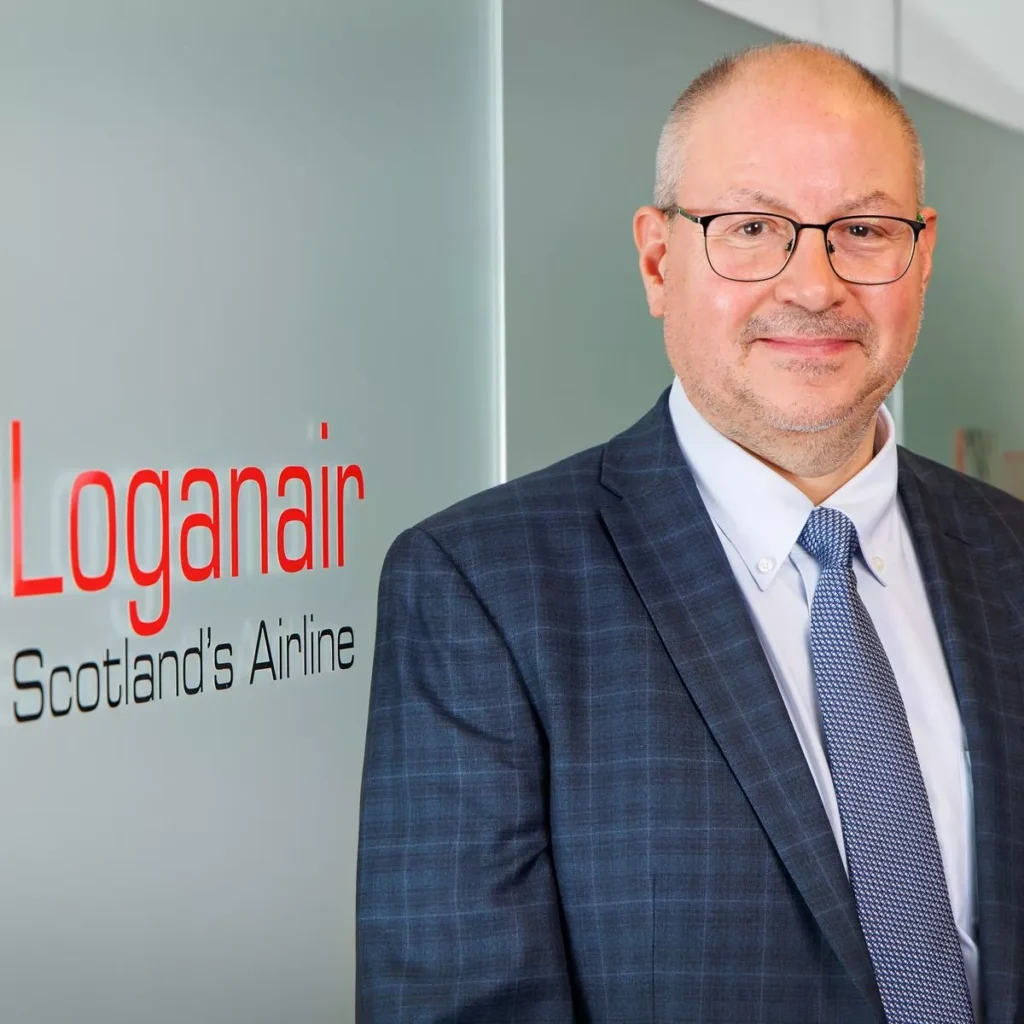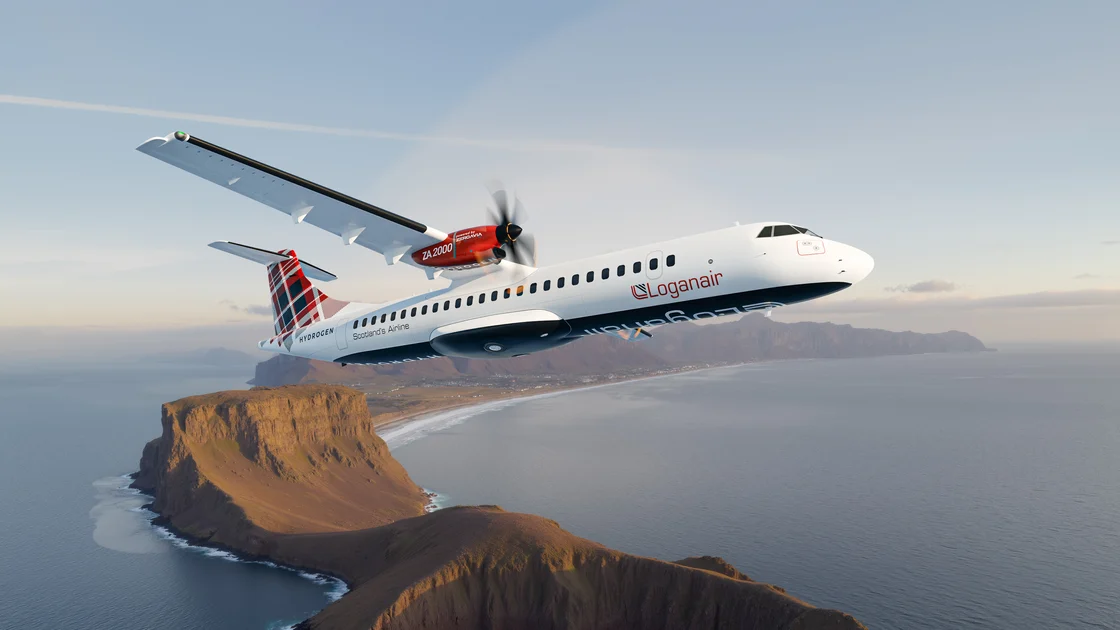PAS 2025: “ZeroAvia, Loganair Sign MOU Agreement on Zero-Emission Flights”
Zeroavia, a developer of full hydrogen-electric engines, announced this week at the Paris Airshow (PAS), that it has signed a Memorandum of Understanding (MOU) with UK-based Loganair, to work towards potential adoption of hydrogen-electric engines to support zero-emission flights, reports a press release.
The release explains, “ZeroAvia is advancing certification of a 600kW hydrogen-electric powertrain for 10–20 seat aircraft with the UK’s CAA. Targeting the Cessna Caravan as the launch airframe, ZeroAvia intends to obtain additional supplemental type certificates (STCs) for other aircraft in this category, including the Twin Otter a popular airframe operated by Loganair to serve communities in the Scottish Highlands & Islands.”
The company is concurrently developing the modular ZA2000 engine for 40–80 seat aviation such as the ATR family of aircraft, with Loganair currently operating more than 20 of such airframes.
Val Miftakhov, Founder and CEO of ZeroAvia, commented, “Loganair’s route network lends itself very well to adoption of both our ZA600 and ZA2000 engine technology post certification. Hopefully, this can be the start of a long-lasting customer relationship for ZeroAvia and cleaner transport for passengers in Scotland and the UK.”
The release continues, “Hydrogen-electric engines use hydrogen in fuel cells to generate electricity to power electric motors that turn propulsors, with the only byproduct being water. With regional turboprop aircraft operating below typical contrail formation, the in-flight emissions impact is effectively zero.”

Luke Farajallah (Credit: Steve Welsh)
Luke Farajallah, CEO, Loganair, remarked, “The future of sustainable flight will rely on companies like ZeroAvia and Loganair to be the pioneers of new technology. We truly believe the Loganair fleet and network to be the perfect airline/geography combination when considering the ZeroAvia product suite.”
Adding, “The recent commitments made by ZeroAvia to bring their hydrogen fuel-cell manufacturing centre to Glasgow, and the strong engagement between our senior teams, has made this next step entirely possible and logical.”
These novel engines promise cost reductions for airlines. The substantially lower maintenance needs of hydrogen-electric engines will mean a decrease in maintenance and downtime for an airline’s fleet, with hydrogen fuel also projected to be significantly more cost effective than kerosene over time.
This week’s agreement cements ZeroAvia’s growing ties in Scotland. The company has been in a longstanding collaboration to explore airport hydrogen fuel infrastructure with Glasgow Airport and recently announced plans alongside the First Minister of Scotland to establish its hydrogen fuel cell manufacturing centre close to the airport and Loganair’s HQ.
For more information
(Top image: Loganair potential hydrogen-powered airline — graphic image)
For the latest news, insights and content regarding the global Advanced Air Mobility market, please join the following eVTOL Insights channels: WhatsApp, Facebook, Instagram, Spotify, Apple Podcasts, YouTube, X and LinkedIn.


